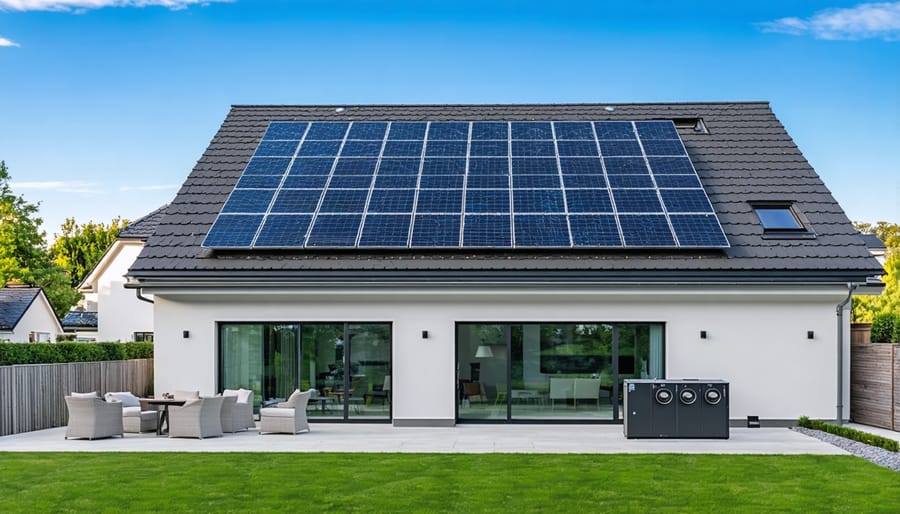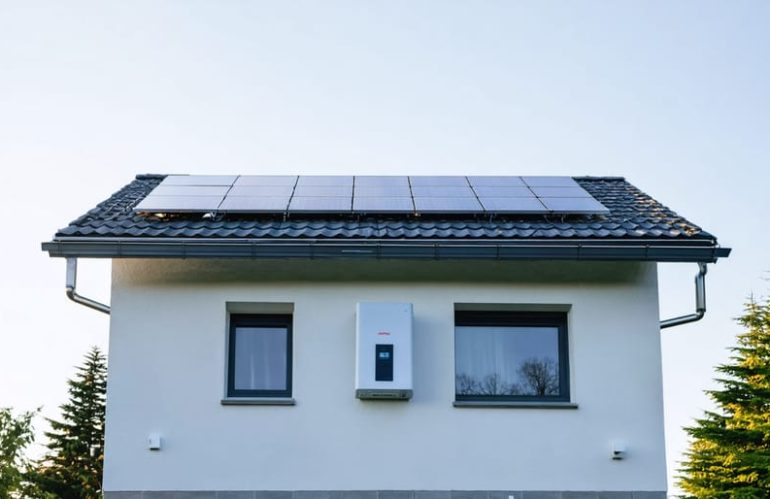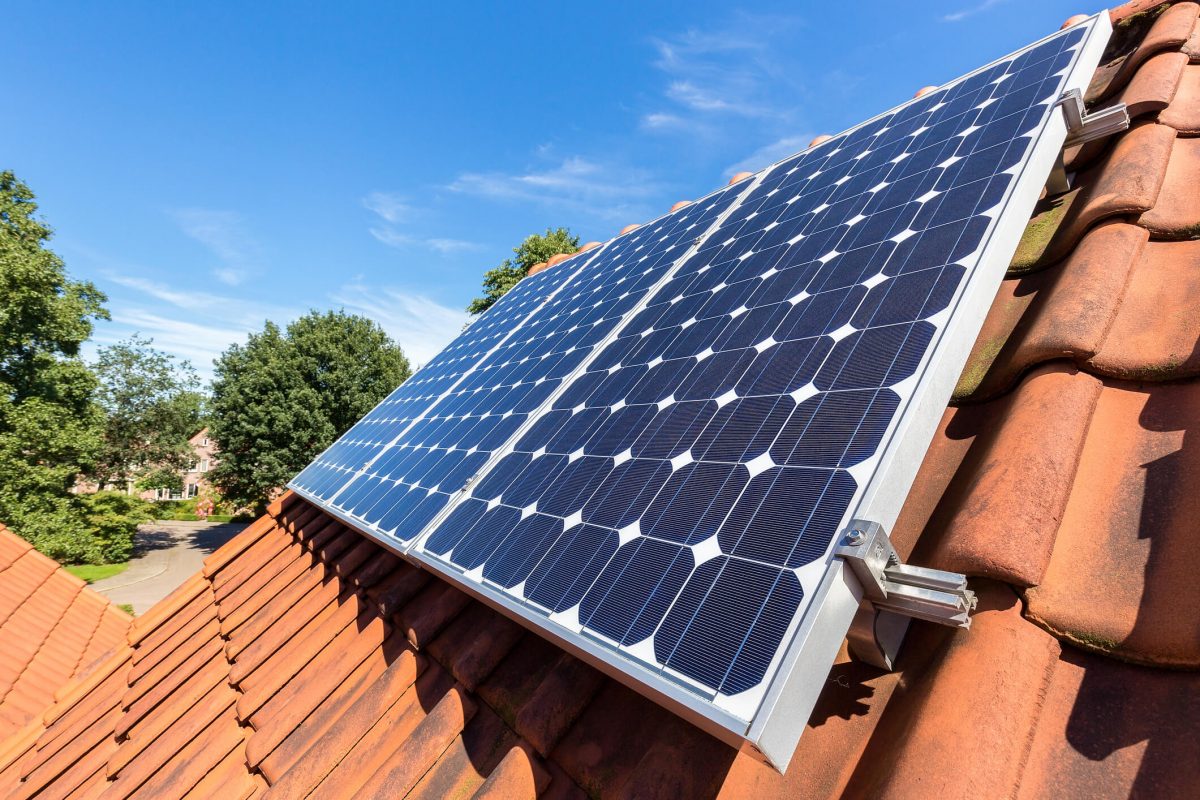Revolutionizing energy storage, blockchain technology for solar storage transforms how homeowners manage and monetize their renewable energy investments. This innovative solution enables secure, transparent tracking of every kilowatt-hour generated and stored, while creating new opportunities for energy trading within local communities. By combining advanced encryption with decentralized ledger technology, blockchain storage solutions eliminate the need for intermediaries, reducing costs and increasing efficiency for solar system owners.
Unlike traditional storage management systems, blockchain platforms provide real-time visibility into energy production, consumption, and trading activities. This breakthrough technology empowers homeowners to maximize their solar investment through automated energy distribution, peer-to-peer trading, and smart contract capabilities. Whether you’re looking to optimize your existing solar setup or planning a new installation, blockchain storage solutions offer a future-proof approach to energy management that delivers both environmental and financial benefits.
For homeowners seeking greater control over their energy assets, blockchain storage represents a significant leap forward in solar technology, promising enhanced security, improved efficiency, and new revenue streams through innovative energy trading opportunities.

Why Traditional Solar Storage Needs an Upgrade
The Data Management Challenge
Managing energy data in traditional systems is like trying to keep track of thousands of moving pieces without a proper organizing system. Power companies and homeowners face significant challenges when monitoring energy production, consumption, and distribution using conventional methods. These systems often rely on outdated databases that can’t effectively handle the massive amount of information generated by modern solar installations.
Think of it as trying to manage your household budget with scattered receipts and notes – it’s inefficient and prone to errors. Traditional systems struggle with real-time tracking, often leading to delayed reporting and inaccurate billing. They also face challenges in securely storing sensitive customer information and maintaining transparency in energy transactions.
For solar energy users, this means limited visibility into their system’s performance and potential delays in identifying issues that could affect energy production. The lack of reliable data management can also make it difficult to optimize energy usage or prove the source of renewable energy credits. This challenge becomes even more complex when multiple parties are involved, such as utility companies, solar installers, and homeowners, each needing accurate, up-to-date information.
Security Concerns in Current Systems
Traditional energy storage systems face several security challenges that can impact both performance and reliability. Many conventional systems lack robust encryption protocols, making them vulnerable to unauthorized access and potential manipulation. The integration of solar storage security systems has revealed gaps in data protection and user privacy that need addressing.
Common vulnerabilities include unsecured communication channels between storage units and monitoring systems, inadequate access controls, and insufficient protection against cyber threats. These weaknesses can lead to energy theft, system manipulation, or unauthorized access to usage data. Additionally, centralized storage solutions often create single points of failure, making entire networks susceptible to disruption.
Many current systems also struggle with maintaining transparent and tamper-proof records of energy transactions. This lack of accountability can result in billing discrepancies and disputes between energy providers and consumers. The absence of real-time monitoring and verification mechanisms further compounds these issues, potentially leading to inefficient energy distribution and increased costs for homeowners.
Blockchain’s Role in Modern Solar Storage

Smart Contracts for Automated Energy Management
Smart contracts on the blockchain are revolutionizing how we manage and distribute energy in our homes. These automated agreements work seamlessly with solar energy management systems to optimize energy usage and storage based on real-time conditions.
Think of smart contracts as your personal energy butler, making intelligent decisions 24/7. When your solar panels generate excess power during sunny days, the smart contract automatically determines whether to store that energy in your battery system, send it to the grid for credits, or distribute it to other homes in your community network. This happens instantly, without any manual intervention needed.
These automated systems also help you save money by responding to peak pricing periods. When electricity rates are high, your system can automatically switch to stored battery power. During low-rate periods, it can prioritize grid power while storing your solar energy for later use. This intelligent management ensures you’re always using the most cost-effective energy source available.
For homeowners participating in community solar projects, smart contracts handle all the complex calculations of energy sharing and credits automatically. They track how much energy each household contributes and consumes, ensuring fair distribution and compensation. This eliminates the need for complicated paperwork and manual billing processes.
The beauty of blockchain-based smart contracts lies in their transparency and security. Every energy transaction is recorded permanently and can’t be altered, giving you complete confidence in your system’s performance and savings. As more homes adopt this technology, we’re moving toward a more efficient and sustainable energy future.
Transparent Energy Trading and Tracking
Blockchain technology is revolutionizing how homeowners with solar panels can monitor, trade, and profit from their excess energy production. This transparent system creates a secure digital ledger that tracks every unit of energy your solar panels generate and where it goes – whether used at home, stored in batteries, or shared with neighbors.
When your solar panels produce more electricity than you need, blockchain enables you to sell this surplus directly to nearby households through peer-to-peer energy trading. This eliminates the middleman and ensures you get fair value for your excess power. The system automatically records these transactions, calculating credits and payments in real-time.
For example, during peak sunlight hours when your panels are generating maximum output, you can earn credits by sharing excess energy with neighbors who need more power. Later, when your production drops, you can use these credits to draw power from the community grid. This creates a more resilient and efficient local energy network.
The blockchain’s immutable nature means all energy production and trading records are tamper-proof and accessible anytime. You can easily track your solar panel performance, energy consumption patterns, and trading history through user-friendly apps. This transparency helps you make informed decisions about your energy usage and maximize the return on your solar investment.
Moreover, blockchain-based energy trading platforms often include smart contracts that automate payments and ensure all parties meet their commitments. This eliminates paperwork and billing disputes while providing a secure way to monetize your solar investment beyond traditional grid feed-in tariffs.

Real Benefits for Homeowners
Lower Energy Costs Through Better Management
One of the most compelling advantages of blockchain technology in solar energy systems is its ability to significantly reduce energy costs through improved management. By implementing smart solar storage solutions, homeowners can optimize their energy usage patterns and maximize their savings.
Blockchain platforms continuously monitor and analyze energy consumption patterns, automatically adjusting storage and distribution based on real-time needs. This intelligent management system ensures that excess energy is stored during peak production periods and utilized during high-demand times, reducing reliance on expensive grid power.
The technology also enables automated energy trading between connected users, allowing homeowners to sell excess power directly to neighbors at favorable rates. This peer-to-peer trading eliminates middleman costs and creates additional revenue streams for solar system owners.
Furthermore, blockchain’s transparent nature helps identify inefficiencies in energy usage, providing homeowners with actionable insights to reduce waste. The system can automatically shift non-essential power consumption to times when solar production is highest, maximizing the use of free solar energy.
Many households report energy cost reductions of 20-30% after implementing blockchain-based management systems, with some achieving even greater savings during peak summer months. These savings typically offset the initial investment in blockchain technology within 2-3 years, making it an economically sound choice for long-term energy management.
Enhanced Security and Control
Blockchain storage solutions offer homeowners unprecedented control over their energy data while maintaining robust security measures. Unlike traditional systems, blockchain creates an unalterable record of all energy transactions, making it virtually impossible for unauthorized parties to tamper with your energy production and consumption data.
Think of blockchain as a digital fortress for your energy information. Each time you generate, store, or trade solar power, the transaction is recorded in multiple locations simultaneously. This distributed nature means there’s no single point of failure that hackers could target, making your energy data significantly more secure than conventional centralized systems.
The technology also puts you in control of your data sharing preferences. You decide exactly who can access your energy production and consumption information. Whether it’s your utility company, energy traders, or neighborhood microgrids, you maintain complete oversight of data permissions.
For homeowners concerned about privacy, blockchain offers peace of mind through sophisticated encryption. Your personal information remains protected while still allowing secure verification of energy transactions. This balance of transparency and privacy is particularly valuable in community solar projects, where multiple households share energy resources.
Additionally, smart contracts automated through blockchain ensure that all energy trades and transactions happen exactly as agreed upon, eliminating the risk of billing disputes or unauthorized charges. This automation creates a trustworthy system that operates without the need for intermediaries.
Getting Started with Blockchain Solar Storage
Getting started with blockchain solar storage is simpler than you might think, and the benefits make it well worth the initial setup. Here’s your step-by-step guide to implementing this innovative technology in your home.
First, assess your current solar setup. If you already have solar panels installed, you’ll need to ensure they’re compatible with blockchain integration. Most modern systems manufactured after 2018 can be easily adapted. If you’re starting from scratch, look for solar installations that come with blockchain-ready smart inverters.
Next, choose a blockchain platform that specializes in renewable energy trading. Popular options include Power Ledger, WePower, and SolarCoin. These platforms offer user-friendly interfaces and automatic energy tracking. Research each platform’s features and choose one that best matches your needs and local energy market conditions.
Install a smart meter if you haven’t already. This device connects your solar system to the blockchain network and tracks your energy production and consumption in real-time. Your local utility company might provide smart meters free of charge, so check with them first.
Set up your digital wallet to manage your energy credits. This works similarly to a regular banking app but specifically handles your energy transactions. Most blockchain platforms provide their own wallet applications, making it easy to monitor your energy production, usage, and trading activities.
Connect with your local energy community. Many areas have energy trading networks where homeowners can buy and sell excess solar power. These communities often provide valuable support and advice for newcomers to blockchain solar storage.
Configure your automation preferences. Modern blockchain platforms allow you to set rules for when to store, sell, or buy energy automatically. For example, you might set your system to store energy when prices are low and sell when they’re high.
Finally, monitor your system’s performance through the platform’s dashboard. Most interfaces show real-time data about energy production, storage levels, and trading activities. This information helps you optimize your energy usage and maximize your returns.
Remember, while the initial setup might seem complex, most homeowners find the system becomes second nature within a few weeks. The key is to start small and gradually explore more advanced features as you become comfortable with the basics. Many platforms offer excellent customer support and community forums where you can find help when needed.
Blockchain storage solutions represent a transformative advancement in solar energy management, offering homeowners unprecedented control, security, and efficiency in their renewable energy investments. By combining decentralized data storage with smart contract capabilities, these systems are revolutionizing how we store, trade, and manage solar energy.
The benefits are clear and compelling: enhanced data security, improved energy trading capabilities, reduced administrative costs, and increased transparency in energy transactions. Homeowners can now track their energy production and consumption in real-time, while participating in peer-to-peer energy trading markets with confidence.
Looking ahead, the future of blockchain storage in solar energy appears remarkably promising. Industry experts predict widespread adoption within the next five years, with continuing improvements in technology accessibility and user experience. We’re likely to see more integrated solutions that combine blockchain storage with artificial intelligence and IoT devices, creating even smarter and more efficient energy management systems.
As costs continue to decrease and technology becomes more user-friendly, blockchain storage solutions will become increasingly accessible to average homeowners. This democratization of energy management technology will play a crucial role in accelerating the transition to renewable energy, creating more resilient and sustainable communities.
For homeowners considering solar energy investments, blockchain storage solutions offer a forward-thinking approach that maximizes the value of their solar installation while contributing to a greener future.








